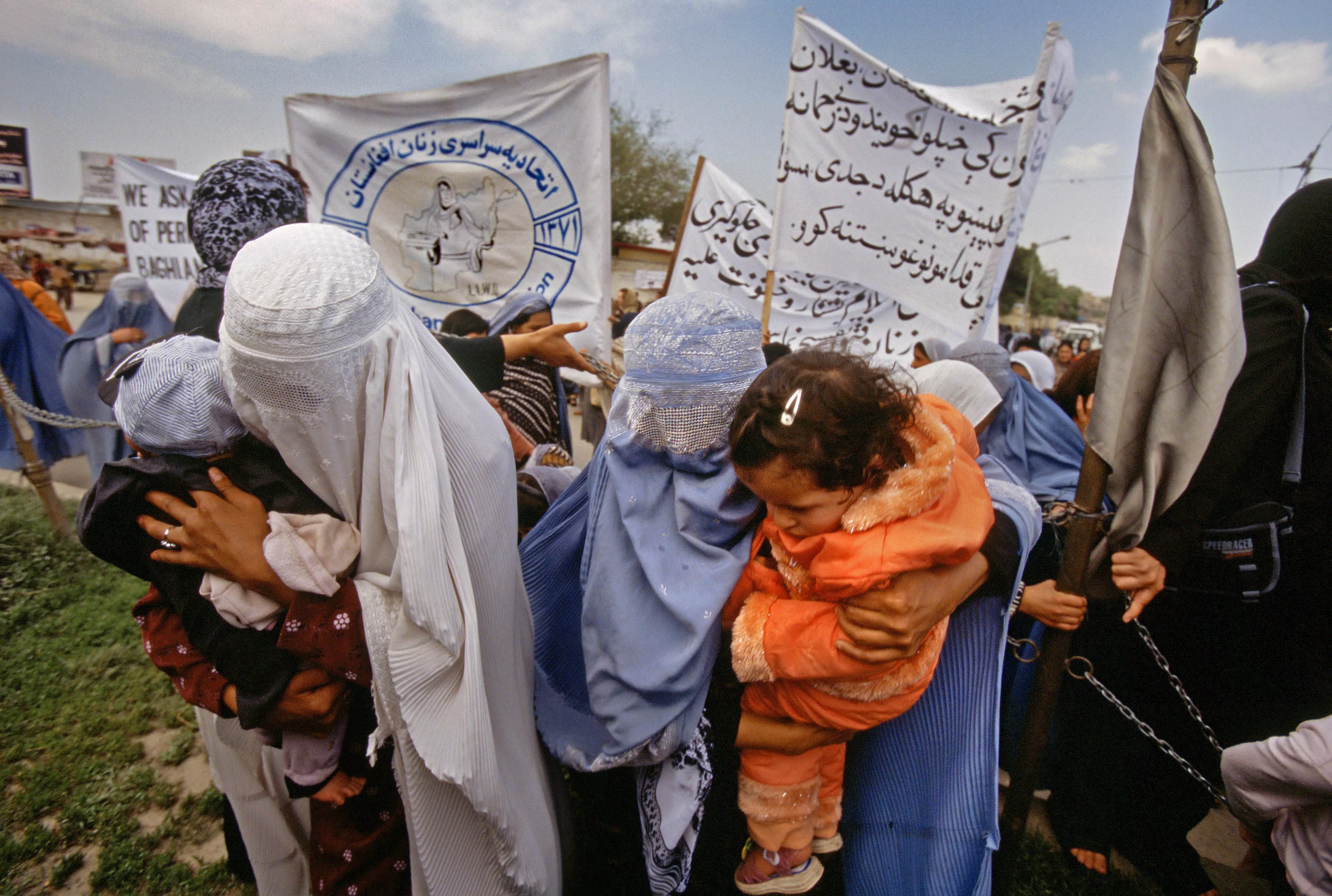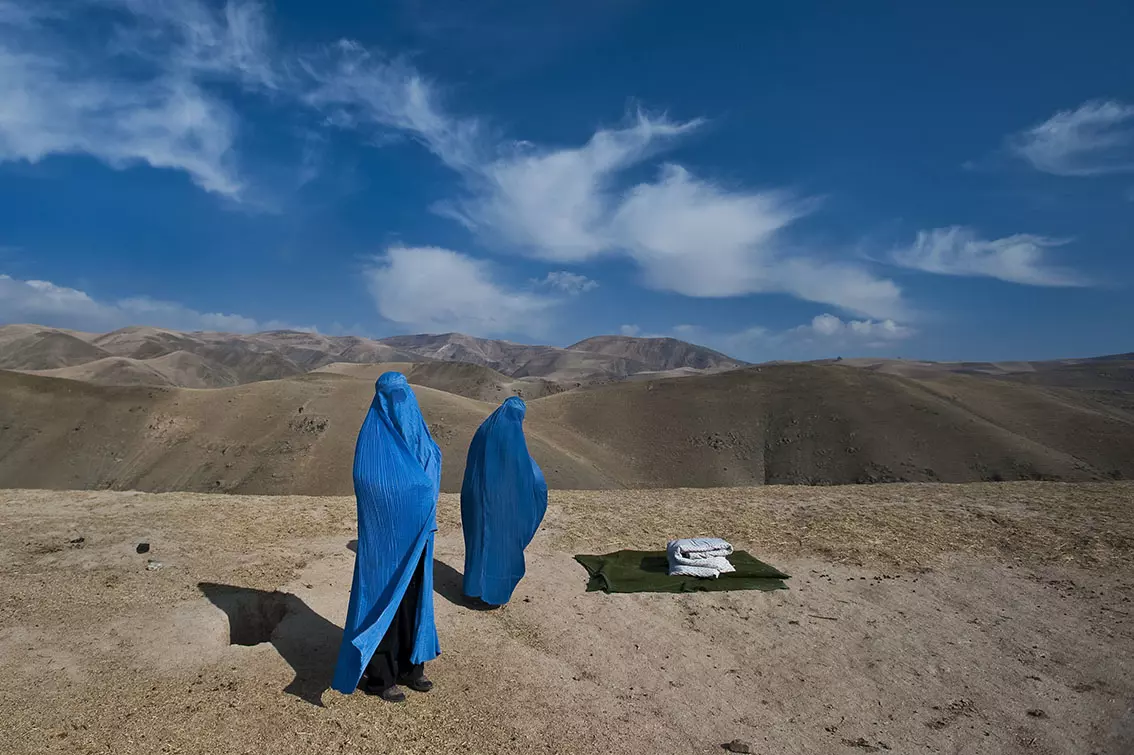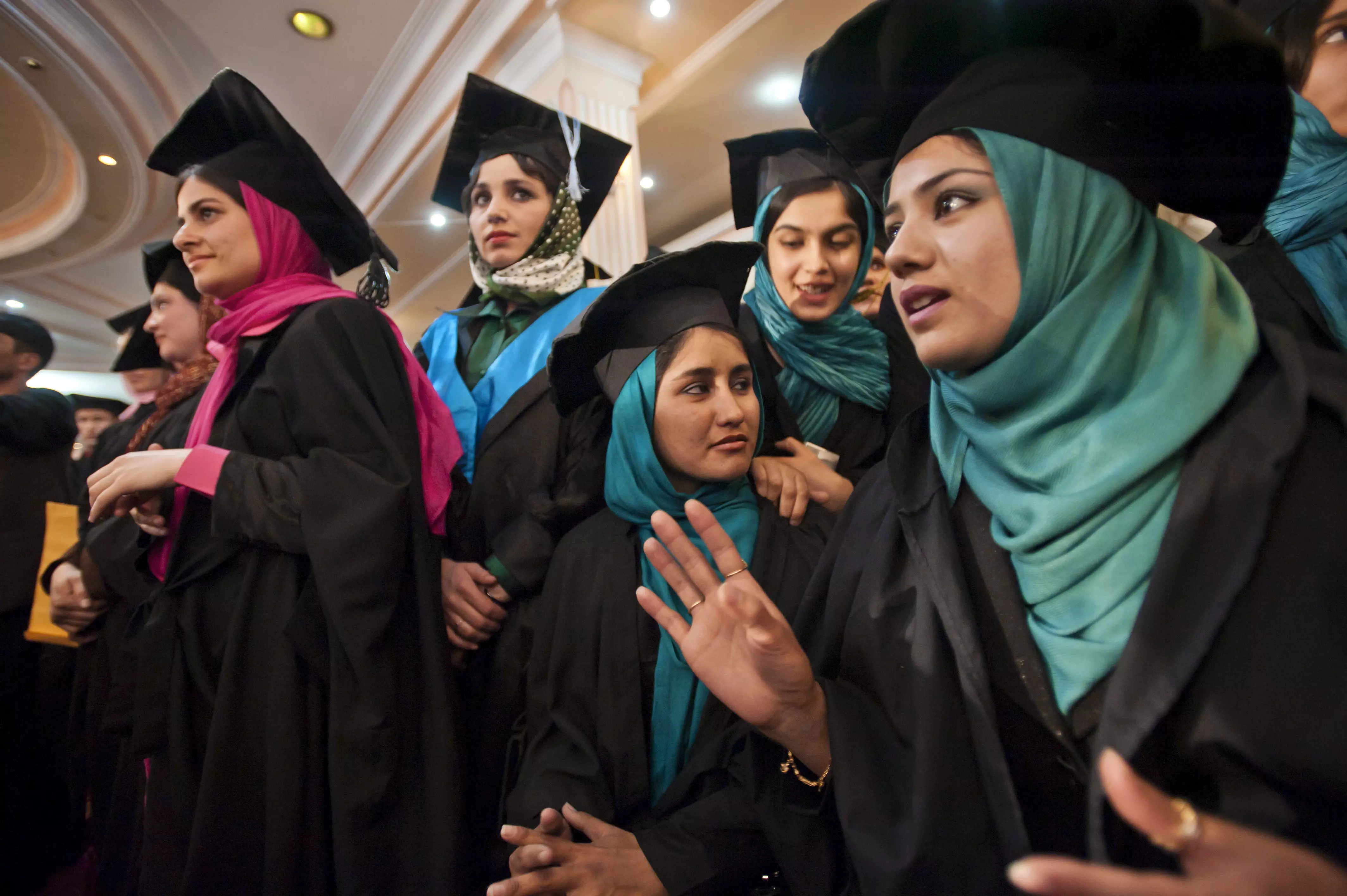
Women protesting the killing of three female Afghan aid workers in 2005. Photograph by Stephanie Sinclair.
DONATE NOW to protect Afghan families in grave danger.
In our current phase of its emergency response, TYTW is focused on in-country initiatives addressing the dire crises of food insecurity, livelihood options for families, and education for girls, serving thousands. In the face of continuous rollbacks of women and girls’ rights in Afghanistan, TYTW’s local team remains nimble and ready to turn to the multiple contingency plans we have in place, which include more private education options, including in-home study programs, and virtual learning. To date, TYTW has also facilitated and played a vital role in several hundred extraction operations, succeeding in the safe passage and evacuation of over 1000 high-risk Afghans.
In August, 2021 in Afghanistan, decades of advances by women in areas of education and government, sports and every other notable profession were wiped out almost immediately. Girls were told to leave their classrooms and forbidden from education; women were ordered home from work. Since the Taliban’s takeover, the list of human rights violations against Afghan women and girls continues to grow.


Noor Nisa, about 18, was pregnant; her water had just broken. Her husband, whose first wife had died during childbirth, was determined to get Noor Nisa to the hospital in Faizabad, a four-hour drive from their village in Badakhshan Province. Photograph by Lynsey Addario.
Parwana Food Security, Livelihoods, and Education Programming
As media coverage of Afghanistan fades into the background, conditions continue to worsen and millions of Afghan families face starvation. Restrictions on banks and rising food prices have left families financially strapped, forcing families to make unimaginable decisions – selling their possessions, organs and sometimes their children – to be able to afford food. The United Nations warned that a million children could die without further intervention. With 95% of Afghans not consuming enough food, the likelihood that more girls will be sold and married is unlike anything we have seen in decades.
Named after nine-year-old Parwana Malik who was sold into marriage in late 2021 and freed by TYTW, our Parwana Food Security & Livelihood Program feeds roughly 1,000 families (more than 10,000 individuals) per month. Our direct assistance also includes infant supplies, blankets, coats and coal depending on need through a network of trained staff and volunteers, employing a holistic community approach to our forced and child marriage interventions.
TYTW’s livelihoods program provides a series of economic development projects to create long-term financial security for families of vulnerable girls. By equipping families with the skills and resources to realize their basic needs, families can provide for their daughters and keep them safely out of child marriages. This program also provides continuous sensitization outreach and dialogue on the importance of protecting girls and communities from the negative repercussions of child marriage. We capitalize on the existing skills, talents, and interests of each respective applicant and family, with directions including wool spinning and dyeing, saffron processing and selling, seamstress programming, shopkeeping, poultry management, and STEM vocational training. The program provides startup capital, training, materials, and business referrals for beneficiaries.
Girls’ Robotics Program
TYTW has recently launched a Girls' Robotics Program in Herat, Afghanistan. Supported in part by Open Society Foundations and run in partnership with the Tawheed School, a private academy in Herat which is world-renowned in robotics, the program will provide roughly 300 primary and secondary school girls the opportunity to both attend school and learn robotics. TYTW’s partnership with the Tawheed School will bring more robust protective mechanisms and resources to girls as a full-service learning institution. To date, the Taliban have denied public education access to secondary school girls.

Members of Kabul University's class of 2010. The women pictured are graduates of the department of language and literature. This graduation was held under tight security at a hotel in Kabul because of an upsurge in terrorist attacks. Photograph by Lynsey Addario.
Background: TYTW’s Afghanistan Emergency Initiative
TYTW immediately engaged in an emergency initiative to arrange the safe evacuation, and other emergency services, for nearly 1,000 high-risk female Afghan activists, journalists, and their families. High-risk Afghans supported by TYTW include girls at risk of child marriage, women’s rights activists, journalists, translators, television reporters, humanitarian aid workers, prosecutors, and other high-profile women trailblazers. TYTW has provided facilitation of visas, air and ground travel, security assistance, securing letters and required documentation for individuals at risk, safe housing for those at highest risk, case management and referrals, medical services and support with basic necessities such as food, baby care products, hygiene products, and clothing.
TYTW has also made emergency grants to local, vetted Afghan organizations aiding women and girls, including the Afghan Women Network (AWN) to help support safe houses that are protecting women targeted by the Taliban, and the Revolutionary Association of the Women of Afghanistan (RAWA), a legendary political/social organization of Afghan women working toward freedom, democracy, and women’s rights since 1977. We support The Khadijah Project, which helps with women’s home, food, medical needs, education (through university), mental health, and soon will add employment-search support, and Srow Zar, which provides seamstress training and livelihood opportunities to young women. We have also previously supported LEARN Afghanistan, which provides mentorship, skill-building, and capacity building courses in science, technology, engineering, and math for girls.
